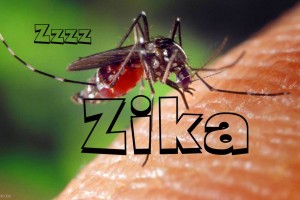- Home
- Editorial
- News
- Practice Guidelines
- Anesthesiology Guidelines
- Cancer Guidelines
- Cardiac Sciences Guidelines
- Critical Care Guidelines
- Dentistry Guidelines
- Dermatology Guidelines
- Diabetes and Endo Guidelines
- Diagnostics Guidelines
- ENT Guidelines
- Featured Practice Guidelines
- Gastroenterology Guidelines
- Geriatrics Guidelines
- Medicine Guidelines
- Nephrology Guidelines
- Neurosciences Guidelines
- Obs and Gynae Guidelines
- Ophthalmology Guidelines
- Orthopaedics Guidelines
- Paediatrics Guidelines
- Psychiatry Guidelines
- Pulmonology Guidelines
- Radiology Guidelines
- Surgery Guidelines
- Urology Guidelines
New mouse model leads way for Zika drug vaccine tests

A team of scientists has developed first animal model for testing drugs and vaccines to battle Zika virus.
The University of Texas Medical Branch researchers' genetically mice have already yielded some clues about the virus' pathogenesis.
Lead author Shannan Rossi said that there is a huge demand to screen antivirals that have been backlogged because we haven't had a good way to test them, adding "Without this model, we were really stagnant in our efforts to find new treatments. You can look for efficacy in cell cultures, but that tells you almost nothing about what's going to happen when you test in a mouse or a human. This will help get those drug and vaccine candidates moving through the pipeline."
"Normally, creating a mouse model like this would take us several months, but the urgency of the situation propelled us into this rapid response, and we were able to put together our results in just three weeks," Rossi said.
Rossi injected several genetically distinct varieties of laboratory mice with Zika virus isolated in Asia in 2010. The current epidemic in South America can be traced to the Asian Zika virus lineage, of which this strain is a member.
Normal mice did not develop disease after infection with Zika virus, the research team reported. Only when researchers injected mice that had been genetically altered to have a deficient innate immune response did the animals develop detectible disease. Young mice of these strains are highly susceptible to infection. These mice became lethargic, lost weight and died within six days after infection. Older mice became ill, but did not always develop infection, and they ultimately recovered.
The mouse model is available immediately for testing of antivirals and researcher Scott Weaver said that preliminary testing is already underway with an antiviral developed by another member of the UTMB team, Pei-Yong Shi, PhD, to treat dengue fever.
The study appears in American Journal of Tropical Medicine and Hygiene.
Next Story
NO DATA FOUND

Disclaimer: This site is primarily intended for healthcare professionals. Any content/information on this website does not replace the advice of medical and/or health professionals and should not be construed as medical/diagnostic advice/endorsement or prescription. Use of this site is subject to our terms of use, privacy policy, advertisement policy. © 2020 Minerva Medical Treatment Pvt Ltd